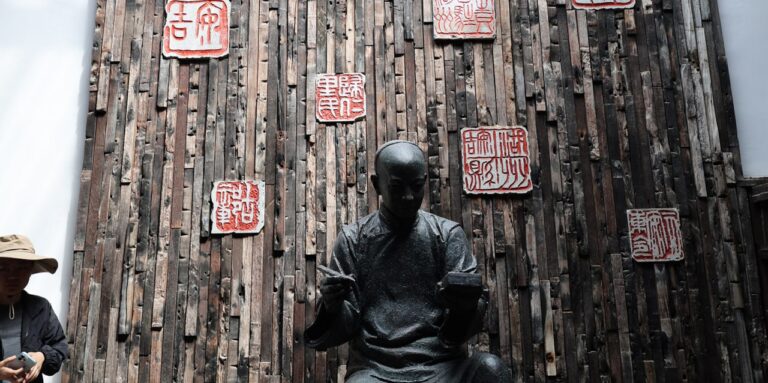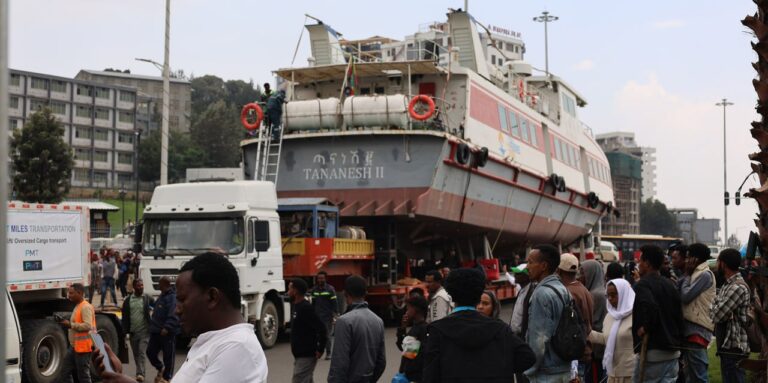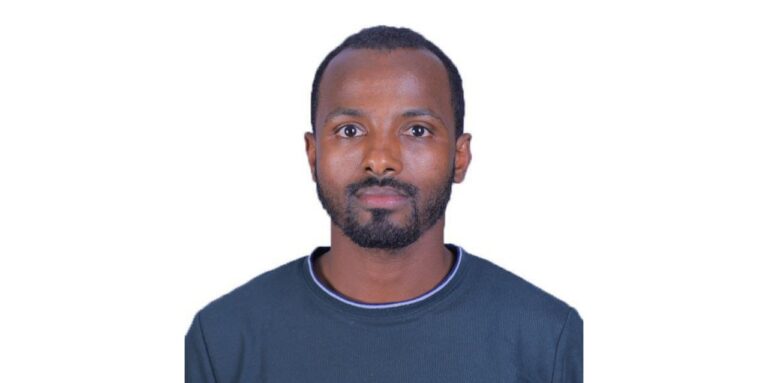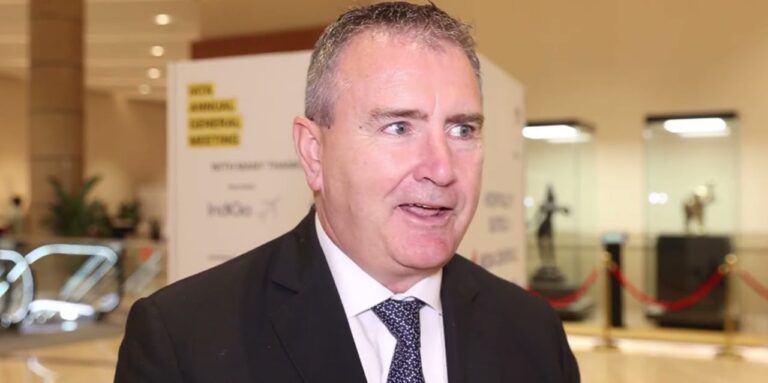Name : Hunduma Atomsa
2. Education (የት/ት ደረጃ): BSc in Computer Engineering
3. Company name (የመስሪያ ቤቱ ስም): Hearty Engineer PLC
4. Title (የስራ ድርሻህ): Co-founder & Chief Finance Officer (CFO)
5. Founded in (መቼ ተመሰረተ): 2022
6. What it does (ምንድነው የሚሰራው): Provides livestock health monitoring for early disease detection
7. Headquarters (ዋና መስሪያ ቤት): Jimma, Ethiopia
8. Start-up capital (በምን ያህል ገንዘብ ስራዉን ጀመርሽ/ክ): 100,000 ETB
9. Current capital (የአሁን ካፒታል ): 500,000+ ETB
10. Number of employees (የሰራተኞች ቁጥር): 3
11. Reason for starting the business (ለስራው መጀመር ምክንያት): To solve the problem of health monitoring in livestock
12. Biggest perk of ownership (የባለቤትነት ጥቅም): Freedom to innovate and make impactful decisions
13. Biggest strength (ጥንካሬህ/ሽ): I can agree with everyone as he/she is
14. Biggest challenge (ተግዳሮት): Access to funding and integrating technology in rural areas
15. Plan (እቅድ): Scale the product across Ethiopia and East Africa, integrate mobile diagnostics
16. First career path (የመጀመሪያ ስራ): Call Center Agent
17. Most interested in meeting (ማግኘት የምትፈልጊ/ገው ሰው): Visionary AgriTech investors and innovation leaders in livestock health
18. Most admired person (የምታደንቂ/ቀው ሰው): Pro. Gabisa Ejeta
19. Stress reducer (ጭንቀትን የሚያቀልልሽ/ለህ): Walking and listening music
20. Favorite book (የመፅሐፍ ምርጫ): The Count of Monte Cristo
21. Favorite pastime (ማድረግ የሚያስደስትህ): None
22. Favorite destination to travel to (ከኢትዮጵያ ውጪ መሄድ የምትፈልጊ/ገዉ ስፍራ): The Netherlands
23. Favorite automobile (የመኪና ምርጫ): Tesla
Operating safely in a more conflict-ridden world
Recent conflict in the Middle East understandably has passengers asking what measures are in place to keep flying safe when there are military activities including missile launches.
It’s a legitimate question. The downing of Azerbaijan Airlines flight 8243 in December last year was a fresh reminder that the risks in conflict zones are real. And a simple internet search will find other examples. These extremely rare tragedies drive everyone in aviation to do their utmost to keep flying safe at all times, and especially when there is armed conflict.
Most travelers will be completely unaware of the work that this involves. While assessing risk is subjective in nature, there is a layered approach to managing flying when conflicts break out or escalate.
The first layer is the longstanding agreement by states that civilian aircraft must never be the target of military operations. This is written in the Chicago Convention which is the bedrock of international civil aviation.
The second layer of protection is the obligation of states to consider any risks and declare their airspace open, closed or restricted in any way. This information is broadly circulated among governments, airlines, providers of air traffic management services and others through a system of NOTAMs—or Notices to Airmen. If airspace is closed or restricted, airlines cannot, do not and will not use it.
A third layer is the airline’s regulator who may decide, based on their assessment, that airlines operating under their jurisdiction must avoid certain areas or take extra-precautions. These restrictions are also communicated to all airlines through NOTAMs and other means of direct communication. In many cases aligned states will follow the lead of key regulators like the FAA or EASA on such judgements.
There is a fourth level of decision-making. Airlines are also obligated to do their own strategic and operational risk assessments. Even if airspace is unrestricted, airlines must use the information available to them to make a final decision on which routings they will use. The quality of such decisions depends highly on the quality of information that airlines receive. Improving that information is the focus of the Safer Skies Consultative Committee initiative which was formed after the downing of Ukrainian Airlines flight PS752 to improve the timeliness and accuracy of information in this area—particularly that which comes from governments.
It’s also important to note that the position of aircraft is monitored throughout flight. As information is received in real-time the airline always has the capability of re-routing aircraft to adapt to any changes in operating risks. Airlines carry sufficient fuel to accommodate potential re-routings or diversions. If the airline, its regulator or the airspace operator change their assessment at any time the pilot can be instructed to change course. And the pilot, herself or himself, can also alter course based on their own judgement of prevailing conditions en-route or at destination.
In parallel to making these decisions, there are also well-established protocols to manage air traffic when aircraft are diverted from their normal routings. In the case of the conflict between Iran and Israel, for example, civil aircraft were directed to fly around the conflict zone. Given the nature of traffic flows in the area of Iran, this mostly meant pushing traffic either further north or further south. But this was not as simple as it may sound. The traffic pushed north of Iran went into an area that was already accommodating aircraft diverted south because of the Russia-Ukraine war. So careful international coordination and contingency planning was needed to make sure that there was sufficient capacity to handle a surge in traffic all along the affected flight paths.
The planning for such contingencies is under the leadership of the International Civil Aviation Organization (ICAO). They coordinate among the affected air traffic control organizations, aviation regulators and other concerned organizations. This includes IATA, whose main function is to ensure the smooth communication of airline needs to the ICAO coordination group and to feedback any constraints to airline operation centers. This is a well-practiced system. While travelers may experience some unavoidable delays due to longer flights times, the aim is to optimize the use of the available airspace as quickly as possible.
Even with best efforts, cancellations and delays can be expected because the available capacity cannot cope with increased traffic. Eurocontrol estimates, for example, that up to 2,000 flights a day are being cancelled in high summer, due to the Ukraine-Russia conflict and associated airspace restrictions.
Interference with Global Navigation Satellite Systems (GNSS) is a further complication that may be on the minds of media-savvy travelers. There has been a surge of such incidents where parties in conflict use radio signals to jam the GPS signals that airliners use for navigation. This occurs in areas bordering conflict zones. Here too, a layered approach keeps such incidents from impacting safety. There are backup navigational aids on the ground that pilots can rely on. IATA is working with the European Aviation Safety Agency (EASA) on improved information sharing so that pilots have early alerts to such risks and engaging with manufacturers for technical workarounds.
The entire civil aviation sector in managing the risks around conflicts so that travelers can get to their destinations without minimal inconvenience. At least for the time being, however, some disruption is an unavoidable consequence of keeping passengers and crew safe amid geopolitical hostilities. With the support of governments, airlines will do their absolute best to protect and deliver global connectivity which is in high demand. Nearly 22,000 routes were served in 2024 because people and businesses want and need to travel. Ultimately, face-face connections that only aviation can facilitate offer our best chance of a world with greater understanding and tolerance, and reduced tension and conflict for all.
Nick Careen is Senior Vice President Operations, Safety and Security at the International Air Transport Association (IATA)






